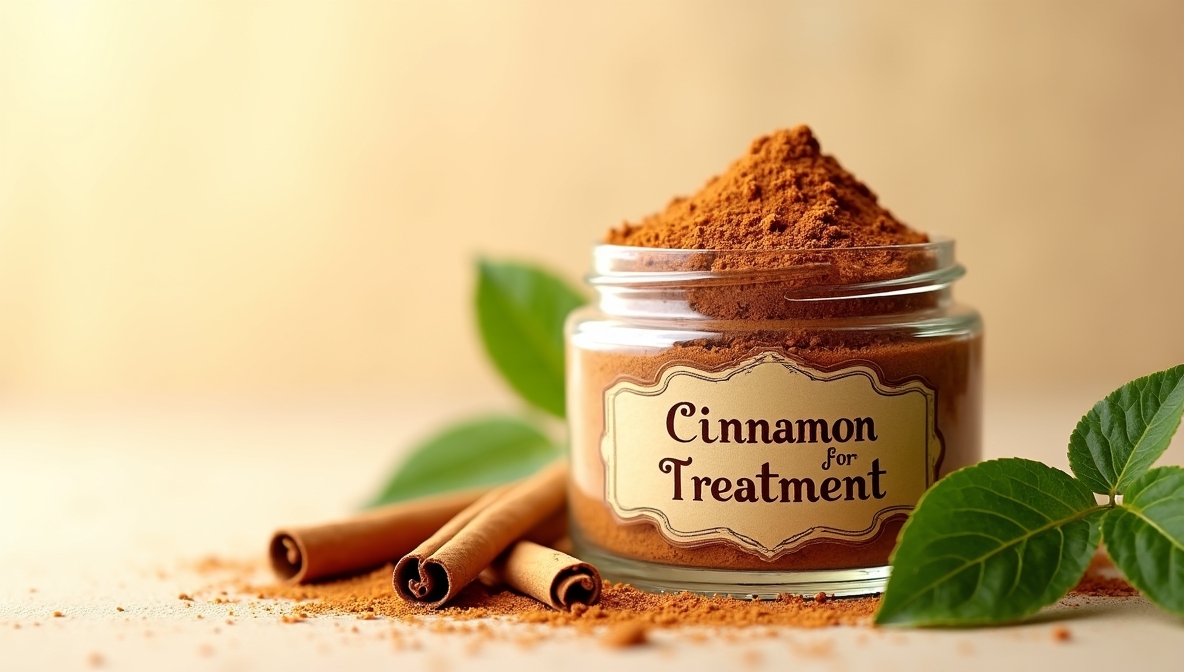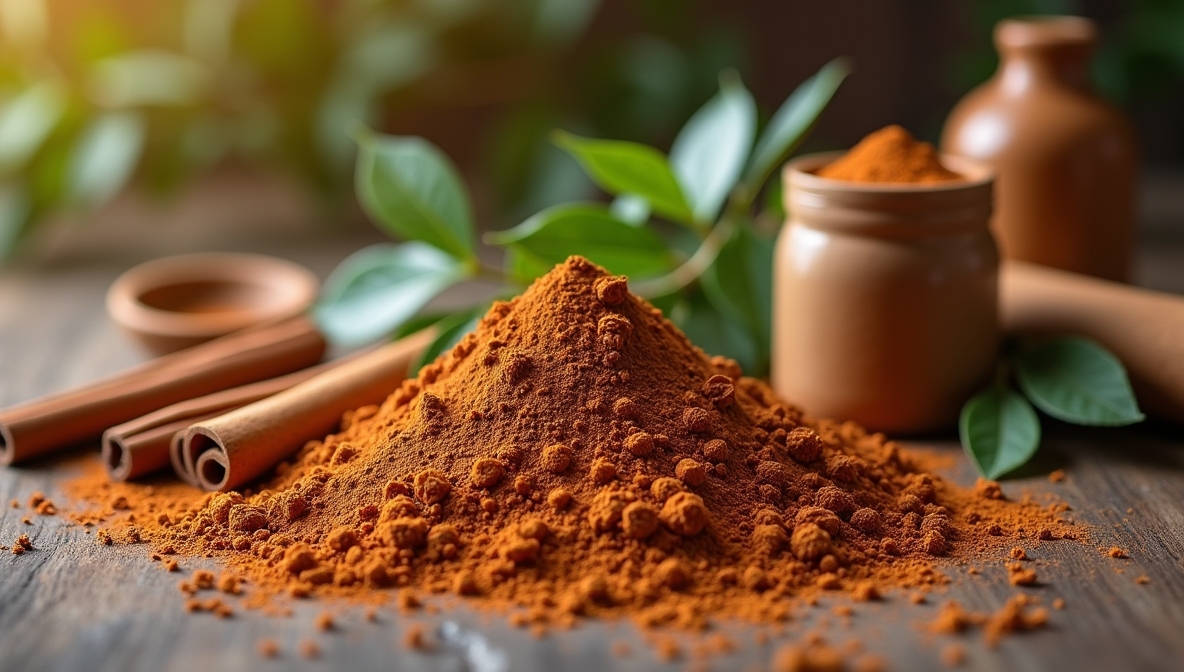Cinnamon has been used for thousands of years, valued for both its flavor and its impact on health. This fragrant spice, derived from the inner bark of trees in the Cinnamomum family, contains powerful compounds that support well-being in many ways. From metabolic function to brain health, cinnamon delivers more than just a warm, comforting taste.
1. Supports Blood Sugar Control
Cinnamon can help regulate blood sugar levels by improving insulin sensitivity. It slows carbohydrate breakdown in the digestive system, reducing spikes in glucose after meals. Studies show that consuming cinnamon regularly may assist those managing diabetes or insulin resistance.
How It Works:
- Boosts insulin sensitivity, helping cells absorb glucose efficiently.
- Slows the release of sugar into the bloodstream.
- May mimic insulin’s effects in the body, improving glucose metabolism.
2. Contains Powerful Antioxidants
Cinnamon ranks among the most antioxidant-rich spices. Its high levels of polyphenols combat oxidative stress, which plays a role in aging and disease development.
Key Benefits:
- Protects cells from free radical damage.
- Supports healthy aging and reduces inflammation.
- Enhances the body’s natural defense system.
Cinnamon’s antioxidant properties make it a valuable addition to a diet focused on long-term health.
3. Supports Heart Health
Regular consumption of cinnamon has been linked to improved heart function and reduced risk factors for cardiovascular disease.
How It Helps:
- Lowers total cholesterol and LDL (“bad”) cholesterol while maintaining HDL (“good”) cholesterol.
- Reduces blood pressure by improving circulation and relaxing blood vessels.
- Contains anti-inflammatory compounds that support arterial health.
Adding cinnamon to meals can contribute to a heart-friendly diet.
4. Provides Anti-Inflammatory Benefits
Chronic inflammation is a driver of many diseases, from arthritis to neurodegenerative disorders. Cinnamon contains compounds that help reduce inflammation at a cellular level.
Key Compounds:
- Cinnamaldehyde – Fights inflammation and supports immune function.
- Eugenol – Offers pain-relieving effects.
- Cinnamic acid – Helps regulate inflammatory responses in the body.
By reducing inflammation, cinnamon may support joint comfort, gut health, and overall well-being.
5. Supports Brain Function and Memory
Cinnamon’s active compounds may protect the brain from oxidative stress and neurodegenerative decline. Some research suggests it may help reduce the risk of conditions such as Alzheimer’s and Parkinson’s.
How It Helps:
- Inhibits the buildup of tau proteins, which contribute to Alzheimer’s disease.
- Enhances brain function by improving blood flow and reducing inflammation.
- May support learning and memory retention.
Regular intake of cinnamon could contribute to cognitive health over time.
6. Aids Digestion and Gut Health
Cinnamon supports the digestive system by promoting healthy gut bacteria and reducing bloating. Its antimicrobial properties help fight harmful bacteria while preserving beneficial microbes.
How It Works:
- Stimulates digestive enzymes for more efficient food breakdown.
- Reduces gas and bloating by calming intestinal spasms.
- Supports gut flora balance, reducing harmful microbes that cause digestive discomfort.
A sprinkle of cinnamon in meals or herbal tea can soothe digestion naturally.
7. Provides Natural Antibacterial and Antifungal Properties
Cinnamon has been used as a natural remedy for infections due to its potent antimicrobial properties. It can help combat bacteria, fungi, and even certain viruses.
Effective Against:
- Bacterial strains like E. coli and Salmonella.
- Fungal infections, including Candida albicans.
- Common cold and respiratory infections.
Using cinnamon in foods and drinks may offer additional protection against harmful microbes.
8. Supports Weight Management
Cinnamon plays a role in metabolism by influencing how the body processes carbohydrates and fats.
How It Contributes to Healthy Weight:
- Helps regulate appetite by stabilizing blood sugar levels.
- Encourages fat burning by increasing thermogenesis.
- May reduce cravings by slowing digestion and promoting satiety.
While no single ingredient guarantees weight loss, cinnamon can be a helpful addition to a balanced diet.
9. Supports Oral Health
Cinnamon’s antibacterial properties extend to oral hygiene, making it a beneficial ingredient in natural toothpaste and mouth rinses.
Oral Health Benefits:
- Reduces bacteria responsible for bad breath.
- Helps prevent cavities by limiting plaque buildup.
- Fights gum inflammation and infections.
Chewing cinnamon sticks or using cinnamon-infused rinses may support fresher breath and healthier gums.
10. Supports Skin Health
Cinnamon’s antimicrobial and anti-inflammatory properties make it useful for skin care. It can help with acne, irritation, and signs of aging.
How It Helps:
- Reduces acne-causing bacteria when used in face masks or spot treatments.
- Promotes blood circulation, improving skin texture and tone.
- Contains antioxidants that may slow premature aging.
Cinnamon-infused skincare treatments can provide natural support for clearer, healthier skin.
11. May Help Alleviate Cold and Flu Symptoms
Cinnamon’s warming nature and antimicrobial effects make it a common ingredient in traditional cold remedies.
How It Assists in Recovery:
- Acts as a natural decongestant by opening airways.
- Soothes sore throats and reduces coughing.
- Supports immune function to help the body fight infections.
Adding cinnamon to warm drinks or herbal teas can provide comfort during seasonal illnesses.
12. May Help Reduce Cancer Risk
Some research suggests that cinnamon’s active compounds may help protect cells from mutations linked to cancer development.
Potential Protective Effects:
- May inhibit tumor growth by reducing oxidative stress.
- Encourages cancer-fighting enzymes in the body.
- Helps regulate cell function, potentially preventing abnormal growth.
While research is ongoing, cinnamon shows promise as part of a diet focused on overall wellness.
How to Incorporate Cinnamon into Your Routine
Adding cinnamon to daily meals is simple. It pairs well with sweet and savory dishes, enhancing both flavor and health benefits.
Easy Ways to Use Cinnamon:
- Sprinkle on oatmeal, yogurt, or smoothies.
- Brew into tea with honey and lemon.
- Add to coffee, hot chocolate, or spiced beverages.
- Mix into baked goods, soups, and stews.
- Use in homemade skincare treatments for gentle exfoliation.
Regular use of cinnamon, whether in food or self-care routines, can contribute to long-term wellness.
Cinnamon offers far more than just flavor—it provides a range of benefits that support overall health. From metabolic function to immune defense, this versatile spice holds value in every kitchen.




